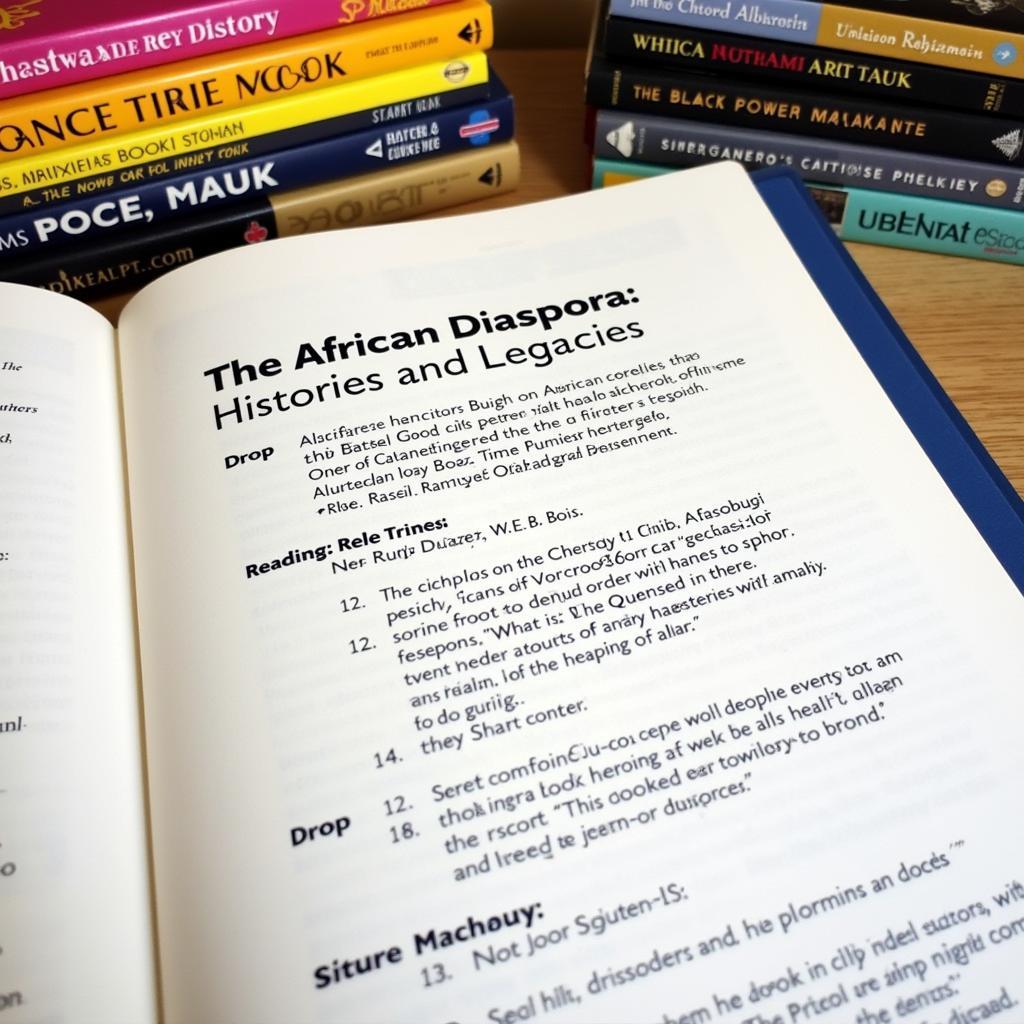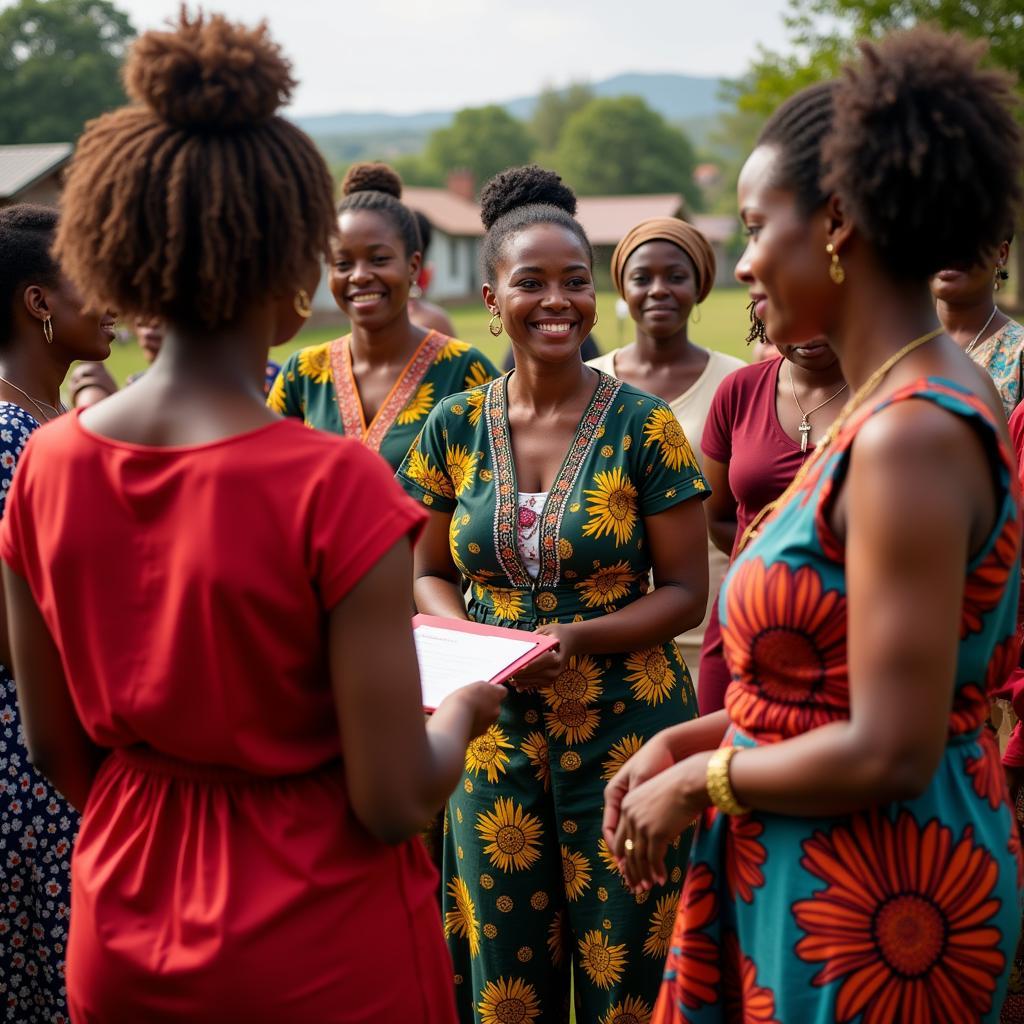Unpacking the African Diaspora: A Look at University Syllabi from 2017
The year 2017 saw a surge of interest in the African diaspora, sparking a wave of academic exploration reflected in university syllabi across the globe. These syllabi, acting as gateways to understanding the complexities of African descended communities worldwide, offer valuable insights into how the diaspora was being studied and taught just a few years ago. While curriculums are ever-evolving, delving into these 2017 syllabi provides a foundation for understanding the historical context, key themes, and methodologies that have shaped the field.
Key Themes Explored in 2017 African Diaspora Syllabi
A deep dive into university offerings from 2017 reveals recurring themes woven throughout the curriculum, highlighting the multifaceted nature of the African diaspora:
- Transatlantic Slave Trade: Unsurprisingly, the foundational impact of the transatlantic slave trade remained a cornerstone of many courses. Syllabi often examined its lasting legacy on social, economic, and political structures across the Americas and beyond.
- Identity Formation and Cultural Hybridity: Courses frequently grappled with the intricate process of identity formation within the diaspora, exploring themes of belonging, double consciousness, and the negotiation of multiple cultural influences.
- Resistance and Social Movements: From slave rebellions to the Civil Rights Movement and beyond, 2017 syllabi often showcased the resilience and activism within the African diaspora, examining how communities have fought for social justice and equality.
- Arts and Cultural Production: Recognizing the power of creative expression, many courses delved into the vibrant artistic contributions of the diaspora. Literature, music, dance, and visual arts were often used as lenses through which to understand the diverse experiences and perspectives of African descended peoples.
 2017 University Syllabus Focusing on African Diaspora
2017 University Syllabus Focusing on African Diaspora
Methodological Approaches in 2017
Beyond the thematic content, analyzing the methodologies employed in 2017 reveals the diverse ways in which scholars approached the study of the African diaspora:
- Interdisciplinarity: Drawing from history, sociology, anthropology, literature, and more, syllabi often emphasized an interdisciplinary approach, acknowledging the interconnectedness of various social, cultural, and political forces shaping the diaspora experience.
- Comparative Perspectives: Many courses utilized a comparative lens, examining similarities and differences in the experiences of African descended communities across various geographical locations. This approach highlighted the global scope of the diaspora while also acknowledging the unique historical and social contexts of specific regions.
- Primary Source Analysis: Recognizing the importance of centering marginalized voices, many 2017 syllabi incorporated the analysis of primary sources. From slave narratives to personal letters and oral histories, these firsthand accounts offered invaluable insights into the lived realities of individuals navigating the complexities of diaspora life.
A Glimpse into the Future: Evolving Understandings
While analyzing 2017 syllabi offers a valuable snapshot of the field, it’s essential to recognize that the study of the African diaspora is constantly evolving. Contemporary scholarship continues to push boundaries, incorporating new theoretical frameworks, engaging with emerging technologies, and addressing pressing social justice concerns.
- Digital Humanities: The rise of digital humanities has opened up exciting new avenues for researching and teaching about the diaspora. Online archives, mapping projects, and digital storytelling platforms are just a few examples of how technology is being used to preserve history, connect communities, and amplify marginalized voices.
- Intersectionality: Contemporary scholarship increasingly embraces the concept of intersectionality, recognizing the ways in which race, gender, class, sexuality, and other identities intersect and shape the experiences of individuals within the diaspora.
- Global Blackness: There’s a growing emphasis on understanding “Global Blackness,” exploring connections and solidarities among Black communities worldwide. This transnational perspective challenges Western-centric narratives and highlights the shared struggles and triumphs of Black people across borders.
Seeking Knowledge: Where to Go From Here
If you’re eager to delve deeper into the richness and complexity of the African diaspora, numerous resources are available. University websites, online libraries, and scholarly journals offer a wealth of information. Additionally, community organizations, museums, and cultural centers often host events, workshops, and exhibitions that provide valuable insights into diaspora experiences. By engaging with these resources and approaching the subject with an open mind and a commitment to lifelong learning, you can embark on a journey of discovery, broadening your understanding of the African diaspora and its enduring impact on our world.
Need assistance in navigating the vast world of African diaspora studies? Contact us! Our team of experts is available 24/7 to provide guidance and support. Reach out via phone at +255768904061, email us at [email protected], or visit us in person at Mbarali DC Mawindi, Kangaga, Tanzania. We’re here to help you on your journey of exploration and learning.



